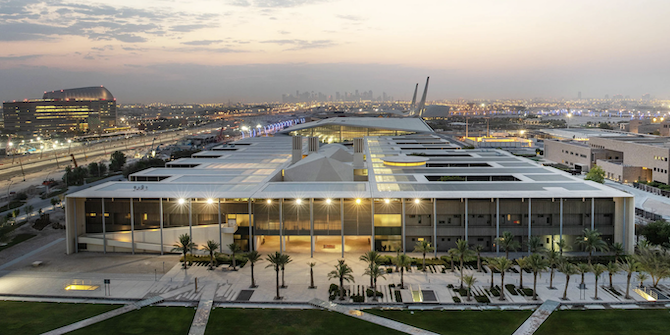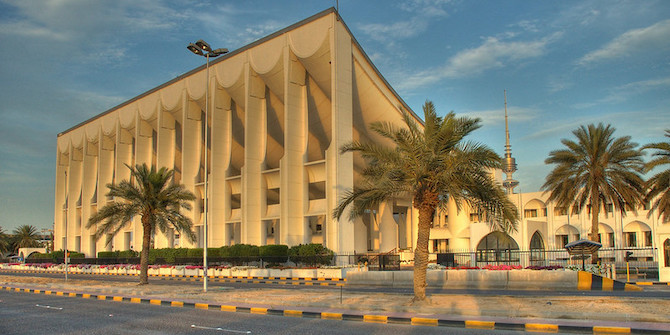by Huda Alrashidi

On 23 May 2022, a massive sandstorm hit Kuwait, grounding planes and drastically reducing visibility, leaving many travelers stranded and people scared. The choking dust and oppressive atmosphere were harsh reminders of nature’s power and the environmental challenges we face. As anyone in Kuwait at that time, I remember that day vividly. These experiences instilled in me a desire to understand the factors contributing to such conditions.
Air pollution condition is a pressing issue that affects countries worldwide, and Kuwait is no exception. With rapid industrialisation, urbanisation, and the harsh desert climate, Kuwait faces significant challenges in managing air quality. The adverse effects of air pollution on public health and the environment are well-documented. However, with the advent of advanced technologies such as machine learning, there is new hope for improving air quality management and supporting decision-makers in Kuwait.
Understanding the Air Pollution Challenge in Kuwait
The primary pollutants of concern in Kuwait include particulate matter (PM10 and PM2.5), sulphur dioxide (SO2), nitrogen dioxide (NO2), carbon monoxide (CO), and ozone (O3). Kuwait faces high levels of particulate matter, especially PM10, exceeding global standards due to various sources like industrial activities and vehicle emissions. Studies have shown a link between exposure to particulate matter, particularly PM2.5, and negative health outcomes, including increased morbidity and mortality rates, especially concerning cardiovascular health.
The Role of Machine Learning in Air Quality Prediction
Artificial intelligent (AI) offers a unique opportunity to make a meaningful impact on Kuwait’s air quality. My research focuses on enhancing air pollution prediction models in Kuwait using different models of ML. Alsaber et al. (2023)used machine learning models to predict PM10 concentrations in Kuwait’s weather dataset. They found severe air quality issues, with ML models performing well. The study showed that various meteorological and pollutant variables influenced PM10 levels.
By applying sophisticated algorithms, these models identify complex patterns and dependencies in the data, including meteorological factors, gas sources, and local geography. This approach enables more precise predictions of pollutant levels by uncovering non-linear relationships and adapting to dynamic environmental conditions. Ultimately, this research aims to provide targeted interventions to improve air quality and enhance public health outcomes.
In summary, ML highlights the potential of predictive models to support decision-making in Kuwait regarding air pollution. By utilising machine learning to forecast air quality levels and understanding the impact of weather conditions on pollution sources, stakeholders can make informed choices to reduce pollution and protect public health. Integrating AI into air quality prediction not only improves forecasting accuracy but also offers insights for developing effective strategies to enhance air quality and reduce the health risks associated with air pollution in Kuwait.
[To read more on this and everything Middle East, the LSE Middle East Centre Library is now open for browsing and borrowing for LSE students and staff. For more information, please visit the MEC Library page.]






